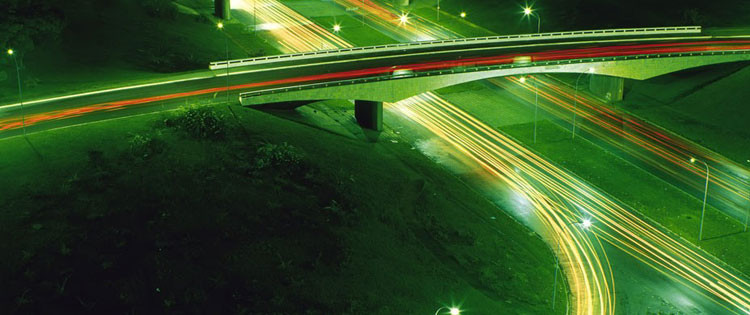Abbott, Patrick tame rogue highway department, scrap new toll projects
It’s not very often that the lowly taxpayer gets a win this big, but it finally came. After 12 years of wrangling over toll roads, Governor Greg Abbott and Lt. Governor Dan Patrick came to the rescue issuing a final decree ending toll roads in Texas.
The Texas Department of Transportation (TxDOT) ignited a taxpayer revolt when it proposed 15 new toll projects as part of the update to its ten year plan — the Unified Transportation Plan (UTP). Not only did TxDOT try to railroad a litany of toll projects, it adopted a plan to use Prop 1 and Prop 7 funds that are constitutionally protected from going to toll projects to finance the US 183 toll project in Austin.
Abbott campaigned on the promise of fixing Texas roads without raising taxes, fees, debt or tolls. He reiterated his position in his first State of the State address in 2015 as well as when he announced his Texas Clear Lanes initiative that was to focus funding on the state’s most congested roads.
The Texas Conservative Grassroots Coalition led by Texans for Toll-free Highways and Grassroots America – We the People fired off a letter to Abbott’s newly named Texas Transportation Chair Bruce Bugg, along with a press release that didn’t mince words, “Read Our Lips: No New Toll Taxes.”
Patrick weighed-in first with a strong public statement, “I oppose adding any additional toll lanes to TxDOT’s UTP. I fought against increasing the state’s reliance on toll roads as a state senator and I have continued that fight as lieutenant governor. The Texas Legislature worked hard to pass Proposition 7 in 2015 to provide billions in funding for transportation infrastructure to help eliminate the state’s need for additional toll roads. Eliminating the need for tolls was one of the primary reasons the Texas Legislature passed Prop 7 and why Texas voters approved it. No new toll roads have been approved by the Senate or the House in the last two sessions and legislators I have spoken with are very unhappy that the Commission seems now to be going in a direction that opposes the will of the legislature and the majority of Texans.”
Patrick also said he sent a letter to Bugg asking him “to develop a plan that contains no additional toll lanes.”
Then Abbott made clear that he expects the same. Spokeswoman Ciara Matthews stated: “The governor and his staff have been in constant communication with members of the Texas Transportation Commission and TxDOT staff to express their desire to not include new toll roads as part of TxDOT’s Unified Transportation Plan.”
Within hours, TxDOT issued its own statement retreating from its position just hours earlier at its Transportation Commission hearing, “Members of the Texas Transportation Commission and TxDOT staff have been in regular contact with the Governor’s office over the past several weeks and we understand the Governor’s expressed desire to not include new toll roads. In response to public comments received, we are developing a plan to scrub the UTP update of any toll roads in the proposed revisions.”
Boom!
So ten days after the grassroots issued its letter in support of Abbott’s no-toll promise and asking for intervention, he and Patrick wasted no time in squelching the rogue agency. Last week, Rep. Joe Pickett requested an attorney general opinion on whether or not TxDOT’s use of Prop 1 and Prop 7 funds on a toll project was even legal, which prompted news reports outing the agency’s deliberate attempt to violate the constitutional protection voters overwhelmingly chose to put in place.
The confluence of events created a perfect storm that led to a public showdown between the taxpayers and a rogue highway department bent on ramming toll roads down voters throats, despite the persistent movement away from toll roads by their elected representatives in recent years.
The unpopularity of toll roads has been reaching a boiling point in Texas. As the house of cards was falling on toll roads, the Texas Tribune ran a story highlighting the reality many commuters now face — pay hundreds of dollars a month in punitive toll taxes to get anywhere, or sit in traffic and watch your quality of life disappear.
One Austin resident literally decided to sell her house and downsize into an apartment to relieve herself of the aggravation of unrelenting traffic in the non-toll lanes or paying ridiculous sums of money in tolls to get to work in a reasonable timeframe.
Her story is echoed by many Texans, especially in the toll saturated Dallas-Ft. Worth Metroplex where drivers can scarcely go anywhere without facing unbearable gridlock or paying tolls upwards of $10/day.
Sen. Bob Hall issued a scathing statement on TxDOT’s proposed toll plan that equates the typical $10/day toll to a $25 per gallon gasoline tax that, over a lifetime, would mushroom into an eye-popping $135,000 in toll taxes.
“This is an outrageously unacceptable tax burden, and Governor Abbott must step-in to stop it before it’s too late.”
Well, Texas taxpayers can breathe a sigh of relief this Thanksgiving that both Abbott and Patrick did just that and rescued commuters from further oppressive toll taxes on 15 more Texas highways. It’s rare for a promise made to be a promise kept in politics. These two leaders are to be commended for keeping their promises to Texas voters.




